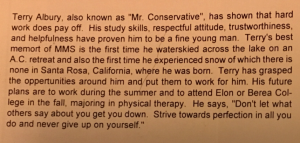Terry Albury was the only Black agent at the FBI field office in Minneapolis. He saw inherent racism in the FBI’s targeting of local communities of color and sought to blow the whistle on that racism and the agency’s unethical use of paid informants. For that, he was fired, arrested, and charged under the Espionage Act. He pled guilty earlier this year and now faces 4 or more years in prison. He’ll be sentenced next week.
Revealed: The Justice Dept’s secret rules for targeting journalists with FISA court orders
Today, we are revealing—for the first time—the Justice Department’s rules for targeting journalists with secret FISA court orders. The documents were obtained as part of a Freedom of Information Act lawsuit brought by Freedom of the Press Foundation and Knight First Amendment Institute at Columbia University.
GCHQ data collection regime violated human rights, court rules
GCHQ’s methods for bulk interception of online communications violated privacy and failed to provide sufficient surveillance safeguards, the European court of human rights has ruled.
But the ECHR found that GCHQ’s regime for sharing sensitive digital intelligence with foreign governments was not illegal, and it explicitly confirmed that bulk interception with tighter safeguards was permissible.
The Government’s Argument that Reality Winner Harmed National Security Doesn’t Hold Up. Here’s Why.
Whistleblower Reality Winner was officially sentenced to 63 months in prison on Thursday, after a federal judge rubber-stamped a plea deal already agreed to by the prosecution and Winner’s lawyers. As the prosecution acknowledged, it is the longest sentence for a journalist’s source in federal court history.
Google complicity in Chinese censorship could endanger press freedom elsewhere
In 2010, after four years of offering Chinese users a heavily censored version of its search engine, Google decided it would no longer block search results at the request of the Chinese state. “Our objection is to those forces of totalitarianism,” Sergey Brin, Google’s co-founder, told The New York Times at the time, adding that he hoped that Google’s stance would apply pressure toward “progress and a more open Internet in China.” Today, the internet in China is more closed than ever.
Taibbi: Beware the Slippery Slope of Facebook Censorship
The social network is too big and broken to properly function, and these “fixes” will only create more problems
Inside Google’s Effort to Develop a Censored Search Engine in China
Google analyzed search terms entered into a Beijing-based website to help develop blacklists for a censored search engine it has been planning to launch in China, according to confidential documents seen by The Intercept.
Oil, Spies and Audiotape in East Timor
This article was originally published in Stratfor Worldview.
The Australian Capital Territory’s Magistrates Court, as the country’s tribunal for “less serious criminal matters” is known, begins an unusual hearing July 25. The government is prosecuting two men with no prior record: lawyer Bernard Collaery and his client, an Australian Secret Intelligence Service (ASIS) operative named only as “Witness K” in the indictment. The charge is that they conspired to violate Section 39 of the Intelligence Services Act by disclosing information about ASIS. The government, citing national security, wants the trial held behind closed doors. But a secret trial would do less for public safety than for the reputation of the politicians involved.
Statement from the Mother of Reality Winner
My daughter Reality has decided to change her plea. I believe that this plea is in Reality’s best interest at this time. Given the time and circumstances and the nature of the Espionage charge I believe that this was the only way that she could receive a fair sentence. I still disagree strongly with the use of the Espionage charge against citizens like Reality. The use of the Espionage charge prevents a person from defending themselves or explaining their actions to a jury, thus making it difficult for them to receive a fair trial and treatment in the court system.


Warrantless searches of journalists at U.S. borders pose press freedom threat
The Custom and Border Protection (CBP) agency’s powers to carry out warrantless searches of electronic devices has serious press freedom implications, including weakening the ability of the media to protect source privacy, the Committee to Protect Journalists found in its report, “Nothing to declare: Why U.S. border agency’s vast stop and search powers undermine press freedom.”